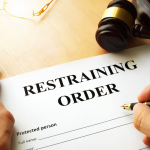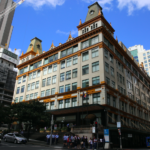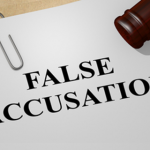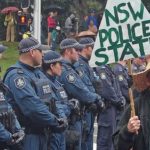COVID-19: Sweeping Changes to Apprehended Violence Order (AVO) Procedures

As COVID-19 continues to impact on the community, the Chief Magistrate of the Local Court NSW, Judge Graeme Henson continues to make new arrangements to protect court users.
The latest arrangements relate to Apprehended Violence Orders (AVOs) and will start today, 1 April 2020, and continue until further notice.
It has been confirmed that no AVO hearings will proceed or be listed until after 1 May 2020.
For AVO cases that were listed for hearing and have related criminal charge/s – the AVO matter will be adjourned to the same date as the criminal charge.
For AVO cases that were listed for hearing but have no related criminal charge/s – the matter will be adjourned for mention. The new court date will be at least 3 months away.
For AVO cases that are listed for mention – parties can mention the matter in writing or email to the court instead of physically attending court – this includes where orders are consented/agreed to.
Consent orders may be made in the absence of the parties involved. If the order is contested, the matter will be adjourned.
Provisional Orders
Recent amendments to the Crimes (Domestic and Personal Violence) Act 2007 allow a provisional AVO to be listed up to 6 months from the date the order was made. Before the change, a provisional AVO was to be listed on the next domestic violence list date or within 28 days of the order being made.
This change means that:
- For provisional orders with related criminal charges – the will be listed on the same day as the criminal matter. The criminal charge should then be adjourned for 8 weeks, and the provisional order would also be adjourned so that the matters continue together.
- For provisional orders made with no related criminal charge – the matter will be listed on the domestic violence list date 3 months from the date the order was made.
- For provisional orders where the application is known to be contested – A timetable (which are the court’s instructions on when documents are due to be served) will be set. It is preferred that Police serve their evidence by email or post on the defendant, and the defendant can lodge their evidence with the court through email.
It is important to remember that a provisional order continues until it is:
- Revoked,
- The court makes an interim order, or
- The application for the final order is withdrawn or dismissed.
If a further incident occurs before the provisional order is dealt with and increased protection is necessary, then the Police will need to apply for a new provisional order.
Urgent AVO Applications
Urgent applications will continue to be considered by the court. The court should be contacted via email as soon as possible. The email should include the nature of application and why it is urgent.
The magistrate will determine if the application is to be dealt with urgently and the parties involved will be advised on the arrangements the court will make to deal with the application. If the parties consent, the application may be dealt with through written submissions.
Private Applications for AVOs
Applicants should speak with the Police to see if the issue can be resolved. If this is not possible, then the applicant should approach the court registry for assistance.
If the registrar is satisfied that the private application has been completed properly, then the registrar will need to determine if the application proceeds:
- If it proceeds and is accepted for filing, it will be put before a magistrate in their chambers (office) who will immediately determine if it is necessary and appropriate to make an interim order. The application will then be listed for final determination – at least 3 months away – whether or not an interim order is made.
- If the application does not proceed, then the reason for the refusal will be provided. The applicant can request a review of the reasons for refusal and any application for review will be dealt with by the magistrate in chambers.
Going to court for an Apprehended Violence Order?
If you have been served with an apprehended violence order, or feel you need to take an apprehended personal violence order against another person, call Sydney Criminal Lawyers 24/7 on 9261 8881 to arrange a consultation with an experienced lawyer who will advise you of your options and the best way forward.






